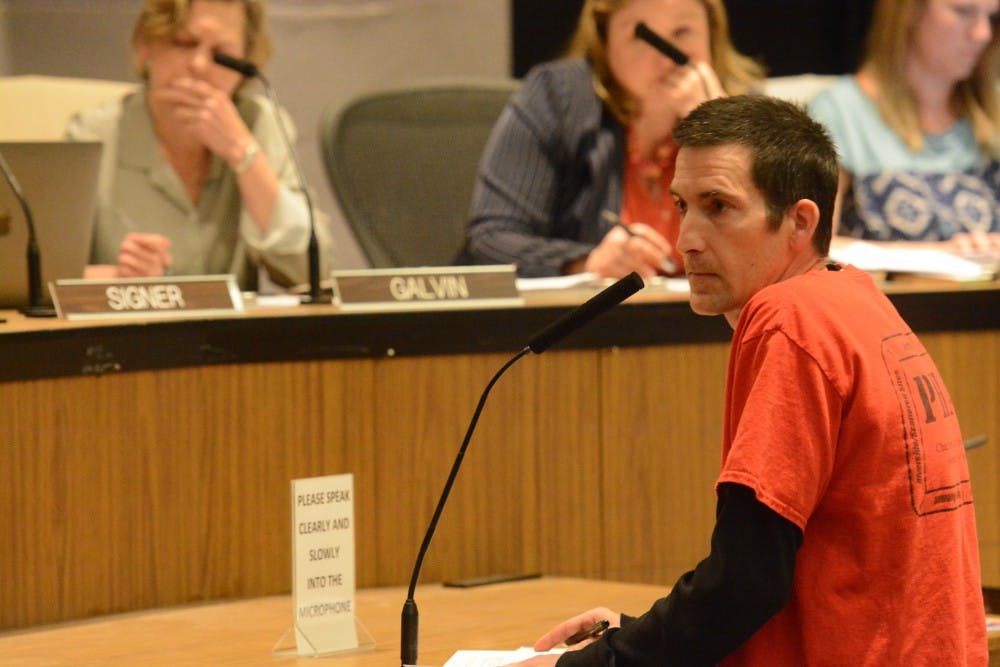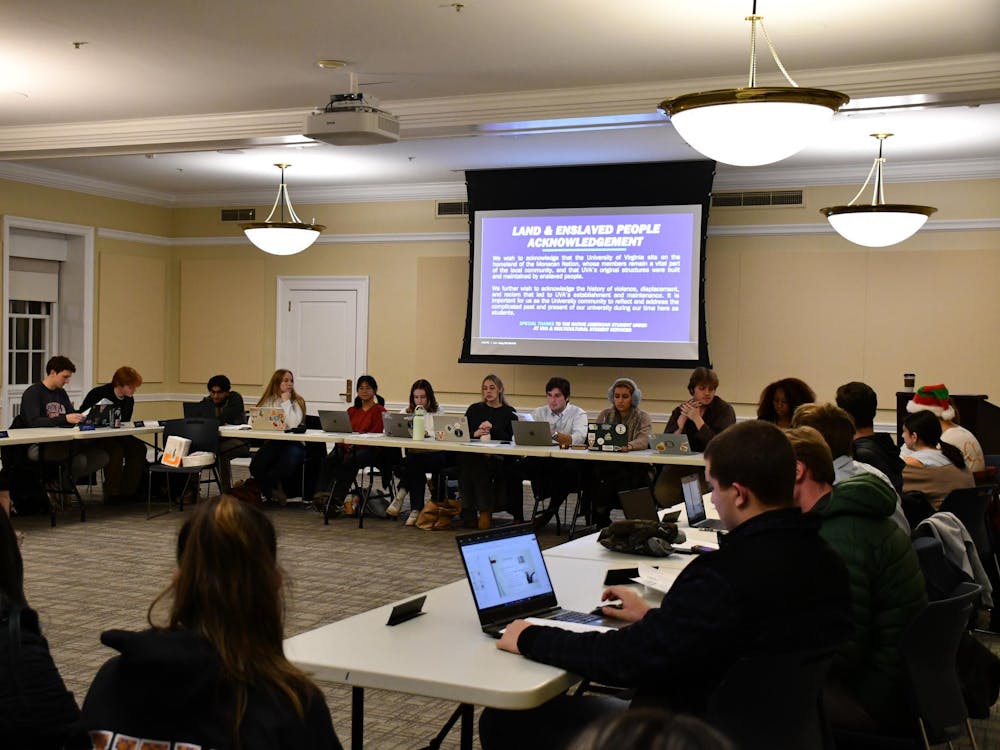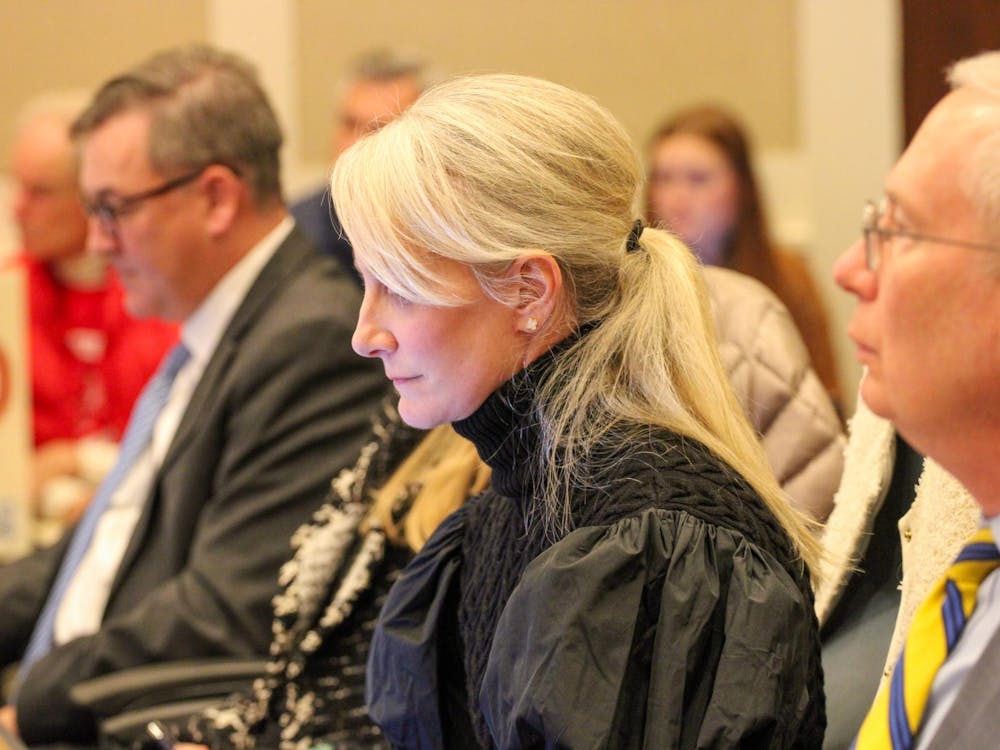The Charlottesville City Council held a preliminary discussion Monday evening about an amended ordinance to establish a City land bank corporation as part of a long term effort by the Council to address the City’s ongoing affordable housing crisis. The City currently has $20 million allocated towards the development of affordable housing in the next five years.
Although the exact structure and role of a land bank varies by location, they are generally nonprofit corporations established by localities with the aim of increasing the availability of housing in a given community by allocating properties for the development of affordable units. Land bank corporations typically receive funding from their respective locality but are separate, nongovernmental entities.
City Council also proposed a series of amendments to the ordinance based on recommendations from the Housing Advisory Committee — including the elimination of an initial administrative board tasked with setting up the bank, the selection of the bank’s treasurer by its own board rather than being appointed by the City Council and the establishment of two year terms for board members.
The initial administrative board would be appointed by City Council and charged with setting up the land bank but would disband upon the formation of the bank’s formal board and would play no role in developing the body’s bylaws.
Based on HAC recommendations, City Council proposed a series of modifications to the bank’s board to include nine members — rather than the proposed eight recommended by City staff — and a greater presence of low-income community members. The board members of the bank would be appointed by the City Council through an application process.
City Council also passed a resolution in a 4-1 vote — with only Mayor Nikuyah Walker dissenting, citing a lack of information — to provide the land bank corporation with a set of guiding principles within three months of passing the ordinance. City Council will consider the final approval of the ordinance at an upcoming meeting.
City Council originally commissioned City staff to research the possibility of the creation of a land bank last summer. After an ordinance was proposed November 2017, the City’s Housing Advisory Committee was tasked with carrying out further public engagement regarding the ordinance. The Virginia General Assembly passed a law in July 2016 which enables localities to establish land bank corporations.
For example, the city of Danville established a land bank in 2017 to deal with the number of blighted properties in the city by allowing a nonprofit organization to auction off such properties on the condition that they are rehabilitated by the new owners.
Charlottesville Redevelopment Manager Brenda Kelley presented the revised ordinance to the Council Monday night. Kelley said the establishment of a land bank corporation would serve as a transactional mechanism created within state law to acquire, manage, develop, sell or convert properties with the goal of increasing affordable housing locally.
Kelley added that the corporation would be able to acquire or accept transfers of real estate from any source, including a locality, and could borrow money from private lenders, enter into contracts and manage or develop properties but would not possess powers of eminent domain or the ability to assume ownership over private property with payment of compensation.
According to Kelley, under the proposed ordinance, the land bank would be a nonprofit corporation separate from the City.
Kelley said one significant advantage of the establishment of a land bank would be the City’s ability to pay the bank up to 50 percent of real estate taxes collected on real property acquired by a person or entity from the land bank corporation for up to 10 years after property conveyance.
However, Kelley added that the bank would be able to acquire properties and repurpose them for other uses as well pursuant to Virginia state law if the property has no utility for affordable housing development — including “use for retail, commercial or industrial activities; preservation or rehabilitation of historic properties within a major design control district; use for public spaces and places.”
The HAC has worked closely with local community organizations — such as the Public Housing Association of Residents — since November to engage community members on the creation of the land bank. However, there has been some tension between the HAC and city staff regarding the establishment of the land bank — particularly in relation to the corporation’s board composition and the nature of the relationship between the bank and the City.
More specifically, representatives from HAC have criticized city staff recommendations to establish an initial administrative board for the land bank and a lack of community presence on the board. However, Kelley said the initial board would only temporarily serve in an administrative capacity for the bank.
“This would just be an adminsterial function,” Kelley said. “This initial board would not be setting up the bylaws, that would be a duty of the full board that they would have to approve the bylaws of the corporation.”
After a period of community outreach, HAC Chair Phil d’Oronozio said the committee found that many community members were concerned with how the bank’s board would be developed.
In response, Councilor Kathy Galvin offered a compromise on the bank’s board membership.
“I’m willing to say that we don’t need that initial board,” Galvin said. “I do see that the treasurer should be selected by the board and not automatically be our city finance director. I’m understanding where you want your flexibility and your autonomy, but I also do see some value with the skillset as well as the communication in keeping all on the same page with your city government.”
Galvin added that these negotiations should have been conducted before Monday night’s meeting.
“This is again very hard on everyone to have to negotiate this from the dais,” Galvin said. “Not having this worked out before we got here is just really troublesome.”
Walker questioned d’Oronozio on where the land for the bank would actually come from.
“One problem that Charlottesville does not have compared to a lot of other places … [is] we don't have vast stretches of blighted land,” d’Oronozio said. “The land can come from a couple of different directions. City Council could decide that it wants to move various tax-delinquent properties in the direction of the land bank in a coordinated fashion. Land can be donated, land can be purchased.”
According to d’Oronozio, the land bank could also potentially acquire commercial property and sell it for funds to contribute to affordable housing efforts or buy land suitable for affordable housing development. However, if the bank is acting as an actual developer, builder or holder of units, it has to seek approval from the Charlottesville Redevelopment Housing Authority first — but does not have to obtain such approval to buy or sell properties.
The CRHA is the City’s policy implementation body for establishing and managing affordable housing units in Charlottesville in cooperation with the public and private sectors.
When Councilor Mike Signer inquired on the financing of the land bank, d’Oronozio said there were a number of ways the bank could obtain funding.
“Initially, this entity is going to have two and only really two sources of income — One is the diverted tax revenues from its initial dispositions, second is from this body [the City Council],” d’Oronozio said. “[However], it is not limited to that because it is in its power to borrow money. It will have the power to issue bonds, it could take out mortgages.”
Earlier in the meeting, city resident Michael Payne praised the recommendations made by HAC for establishing a land bank but lamented the those made by city staff.
“The Housing Advisory Committee spent a lot of time getting significant community input, and I think they developed a really strong set of recommendations to ensure that its only use could be for affordable housing and that the board would comprise primarily of affordable housing advocates and low-wealth community members,” Payne said.
PHAR organizer Brandon Collins said the city was not considering the proposed land bank ordinance in the context of a larger affordable housing strategy and criticized city staff for not adhering to HAC recommendations.
“Part of that opposition [by PHAR] was based on the idea that the city needs a comprehensive housing strategy, and before you have a strategy, you shouldn’t be selecting tools to address that strategy,” Collins said. “There are many things a land bank can do in this town that are different from a traditional land bank, and therefore the destructive power of a landbank is tangible.”







